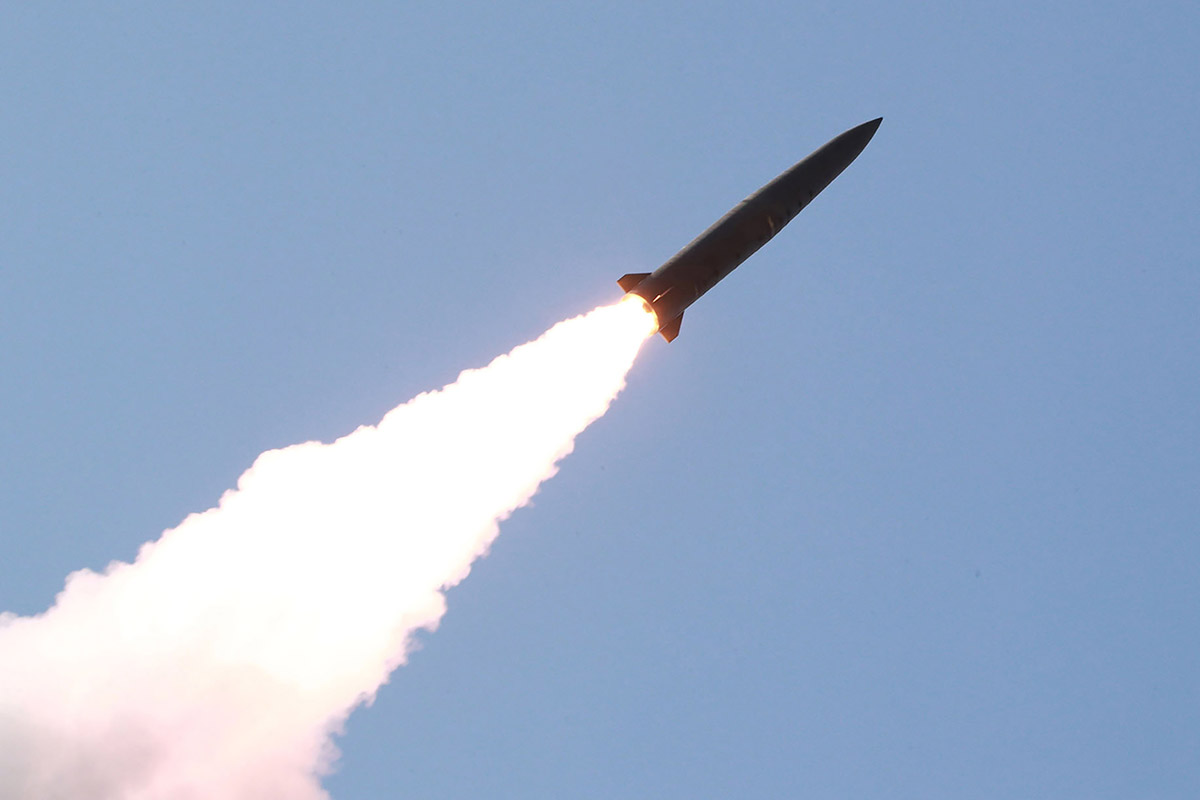The path to peace on the Korean Peninsula remains as perilous as ever. After a second summit between United States (US) President Donald Trump and North Korean leader Kim Jong-un in Hanoi in February produced no agreement, tensions have escalated, raising – yet again – concerns about a military confrontation.
The international community’s longstanding formula for dealing with North Korea combines harsh sanctions with intermittent negotiations focused on securing the country’s “complete denuclearisation.” Multiple United Nations (UN) Security Council resolutions block North Korea from engaging in virtually any foreign trade. It cannot export coal, iron, or other minerals, and its imports of crude oil are severely restricted. Various targeted financial sanctions are also in place.
The US augments these measures with sanctions of its own, targeting, in particular, foreign financial institutions with any connection to North Korea-linked activities. The US also refuses entry to any aircraft or ship that has been in North Korea in the last 180 days.
Sanctions have undoubtedly been painful for North Korea. The economy contracted by 3.5 percent in 2017, according to estimates by South Korea’s central bank, and is believed to have shrunk by more than five percent in 2018. North Korea’s struggles are now compounded by severe drought and a major food crisis caused by the worst harvest in a decade.
Making matters even worse for North Korea, its economic ties with China, its largest trading partner and most important benefactor, are weakening. According to official Chinese statistics, the North’s exports to China plummeted 88 percent year on year in 2018, to US$209 million. Imports fell by one-third, to US$2.24 billion.
Nonetheless, many experts, including Richard N. Haass, the president of the Council on Foreign Relations, argue that sanctions alone will never be sufficient to bring about complete denuclearisation. After all, North Korea’s closed economy has proved far more resilient than anyone expected, and there is no sign that Kim’s regime is at risk of collapse. And collapse would not be a desirable outcome, as it would trigger regional chaos, with China and Russia doing what they could to avoid a unified Korea allied with the US.
At the Central Committee of the ruling Workers’ Party in April, Kim pledged to defy “hostile forces miscalculating that sanctions can bring North Korea to its knees.” Less than a month later, the North had resumed its favourite provocations, launching several of its newest type of short-range ballistic missiles and testing multiple launch systems.
The Trump administration remains stubbornly committed to maintaining its “maximum pressure” policy until the North agrees to its demand for total denuclearisation. But, as the Hanoi summit underscored, the combination of denuclearisation and sanctions relief that the US envisages differs sharply from North Korea’s position.
The truth is that a grand bargain, whereby North Korea completely eliminates its nuclear and missile capabilities in exchange for the removal of all sanctions, is not immediately realistic. The US and North Korea should keep in mind the long-term goals, agreed in Singapore last year, of complete denuclearisation of the Korean Peninsula, security guarantees for the North, and peaceful relations. But, for now, they should be pursuing an interim deal: in exchange for concrete, verifiable steps toward denuclearisation, North Korea would gain partial sanctions relief and closer inter-Korean economic cooperation.
A critical step would be the North’s dismantling of all nuclear enrichment and reprocessing facilities at its main Yongbyon facility. The country should also stop conducting nuclear or missile tests, provide a complete list of nuclear facilities, and welcome international inspectors for verification. In exchange, the US could officially end the Korean War, 66 years after the armistice agreement was signed. This would be followed by the establishment of liaison offices in Pyongyang and Washington, DC, and the removal of certain UN sanctions.
South Korea could help by pursuing inter-Korean cooperation. Its government recently pledged to provide US$8 million in humanitarian aid to the North, and to strengthen cooperation on health and environmental issues. If sanctions were relaxed, the two Koreas could consider reviving the Kaesong industrial complex, reopening Mount Kumgang to tourism, and building railways, roads, and energy networks linking the North and South.
Well-designed inter-Korean economic cooperation could bring about real, bottom-up change in North Korean society. Already, the North’s shadow market economy is expanding rapidly. According to a recent study, at least 70 percent of household income nowadays comes from informal economic activities, including sales at markets and smuggling. This increased marketisation is weakening the state’s power.
Using aid and economic cooperation as leverage, South Korea should try to persuade the North to implement market-oriented reforms, including measures to recognise private ownership and protect foreign investment. Given his own interest in strengthening his country’s economy, Kim may well agree.
Cooperative projects, especially those involving large-scale investment, should be designed with care, so that they – alongside reduced sanctions – advance North Korea’s integration into Northeast Asia’s production and trade systems. They should also help to persuade the country to abandon nuclear-weapons development, establish diplomatic relations with the US, and join international organisations like the International Monetary Fund, the World Bank, and the World Trade Organization.
The future of the Korean Peninsula remains hazy. Sanctions relief and inter-Korean economic cooperation could be a game-changer, but they will become an option only if the North takes credible steps toward “final and fully verifiable denuclearisation.” With South Korean President Moon Jae-In’s falling approval ratings potentially shaking his commitment to rapprochement, and Trump as unpredictable as ever, Kim may not have long to decide.
Lee Jong-Wha is Professor of Economics and Director of the Asiatic Research Institute at Korea University. His most recent book, co-authored with Harvard’s Robert J. Barro, is Education Matters: Global Schooling Gains from the 19th to the 21st Century.
